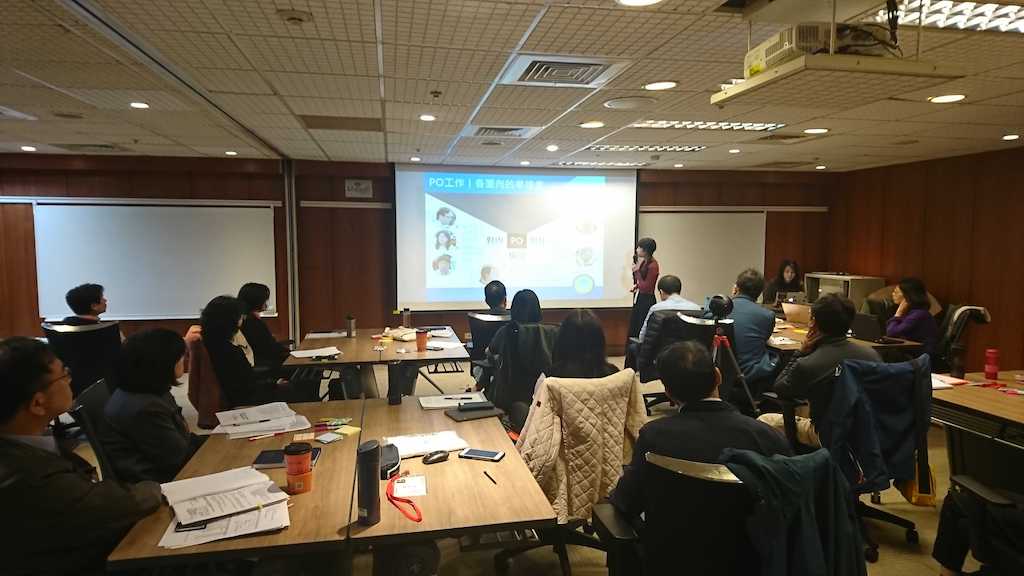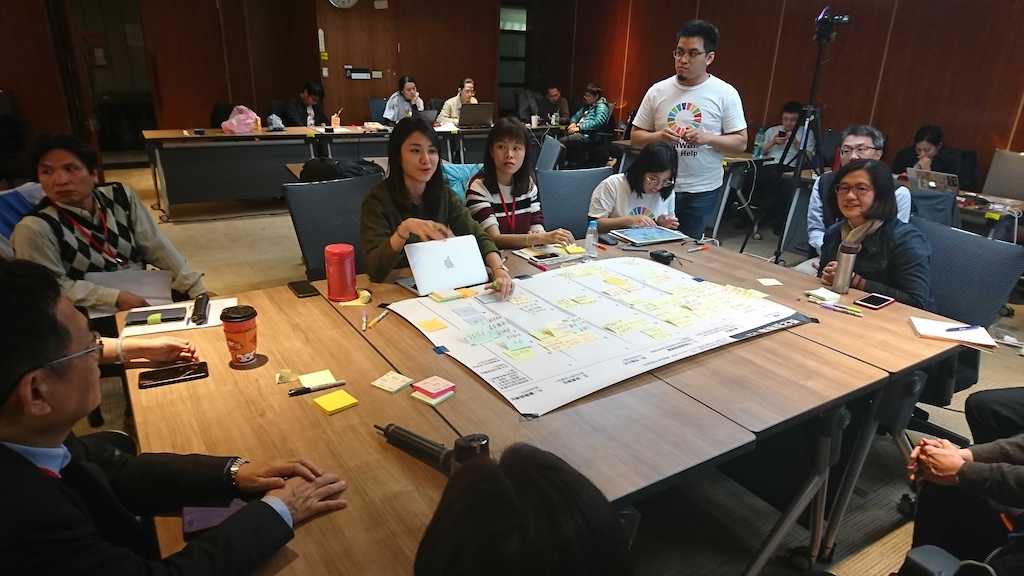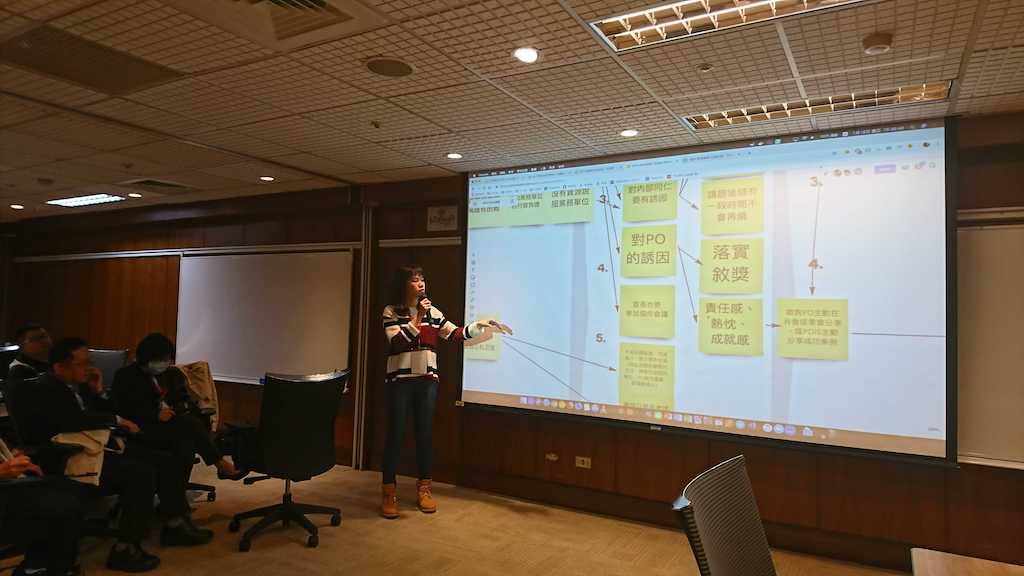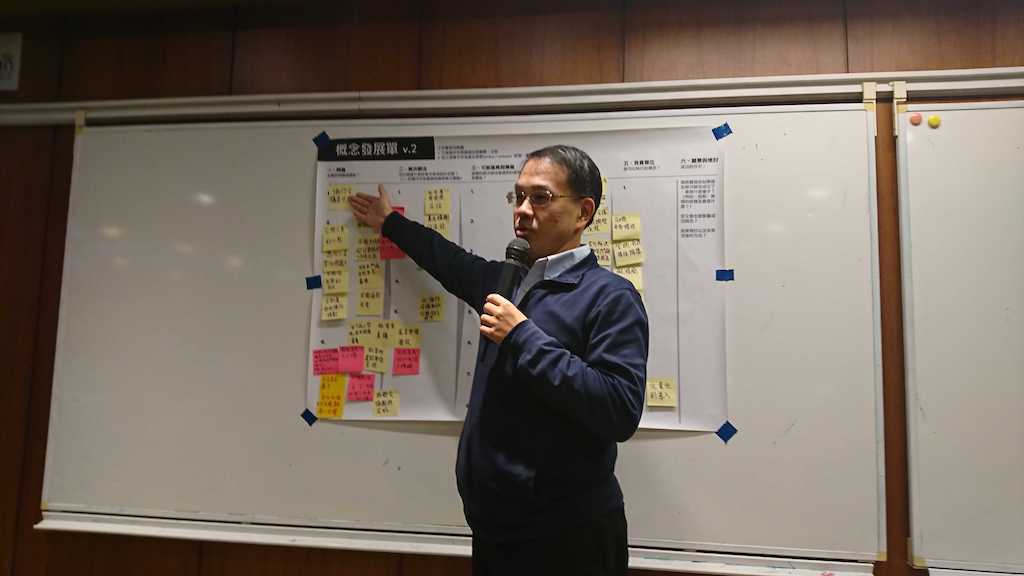How to improve the open government contact system? Consensus camp discussion possible solution
In order to understand the working conditions of these open government liaisons and how PDIS should assist them in the future, PDIS held two echelon consensus camps on January 18 and 25, 2019, hoping to let PO talk about the current working conditions. It also gives the new PO an opportunity to understand how the Open Government Liaison System (hereinafter referred to as the PO System) works. Participants suggested that striving for the authority of the chief executive and convincing the business unit's energy is the direction for improving the open government liaison system in the future.
Open Government Liaison System has been in operation for more than two years now, and many ministries have experience in connecting through the open government liaison system, as well as many ministries. Due to the joining of the Join platform, there is cooperation with PDIS to hold collaborative meetings.
In order to understand the working conditions of these open government liaisons (POs) and how PDIS can assist them in the future, PDIS held two echelon consensus camps on January 18 and 25, 2019. I hope that PO can talk about the current working conditions, and let the new PO have an opportunity to understand how the open government contact system (hereinafter referred to as the PO system) works.
This consensus camp is planned to be a collaborative meeting. PDIS is used as a business unit to make its own proposals, and each PO is invited to discuss as a participant. The purpose of the establishment of PDIS is to achieve "public-private trust". Therefore, by introducing the four complementary elements of "opening", "transparency", "responsibility" and "conclusion" as a tool, I hope that it will be facilitated. The result of "public-private trust".
The beginning of the PO system is the hope that the past problems can be solved. In the past, the success of the Join platform was often in the business unit, so the experience also accumulated in the business unit, the need to have a dedicated person to force; at the same time, this person should also become a window of the inter-ministerial meeting. PDIS's expectation for PO is to host, translate and record. It is hoped that it can host meetings of multi-stakeholders. It can translate public sector press releases into words or languages that can be understood by ordinary people. Finally, the conference should record as much as possible. Words or video records, etc.
Tang Feng once helped translate the "Evolution of Trust" game. In the game, if you cooperate for a long time, people will There is no incentive to deceive each other. The PO system gives the windows of the various ministries to the dedicated people. The original intention is also to hope that through long-term cooperation, there will be opportunities for mutual trust between the ministries, and then actively cooperate on the issues of inter-ministerial meetings. However, in the long-term operation, the PO system only uses the form of collaborative meetings to solve the problems raised by the joint platform on the Join platform. Is there an opportunity to improve this?
And in the process of organizing the conference, there are actually many points that need improvement. After each collaborative meeting, they will feel that the public sector is very sincere in the interviews of the sponsors. Such meetings make them feel good; but the participating ministries all say that the preparation period for the collaborative meeting is really tired. Time is pulling longer. Is there a way to spend less time but achieve a certain effect? Or does the division of labor have room for adjustment? At the same time, in the process of preparing for the meeting, how is the authorization of PO in the ministry, and how to coordinate the various business organs and inter-departments?
Further on the selection of collaborative conference topics, in addition to the issues on the Join platform, can there be more topics raised by the ministry, and it can really help the conference to help the ministry to formulate the future. Policy, or assist the ministry to solve business needs?
Lai Zhixiang finally asked, if PDIS has the right to propose, will it be better? He asked, if there is a proposal, you can let PDIS intervene in some of the issues that are being dealt with, or let cases that some ministries would not dare to mention can be dealt with. If there is no better solution, is this better?
The senior PO of the Welfare Department shared that there are several types of cases in their ministry. The first category is the “pushing point” of the Join platform. After 5,000 people have been involved in the case, about 50 cases a year, and 3 cases entered the collaborative meeting. Since the final result PO will be checked, the direction is usually in the direction of the research, and the comparison can actually respond to the point of concern of the public. The second category is the part of the high-level designated collaborative meeting. In this year, the big case of the Welfare Department was the development of the health insurance card virtual card program. A total of three collaborative meetings were held, and there will be a pilot project in the future. The third category is self-governing within the ministry. If it involves openness, live broadcast, transparency, and participation, PO is the object of consultation within the department. The demand may come from the chief or colleagues.

The PO believes that the notices and even the cases on the first type of Join platform will continue to appear. This is more like continuous operation and foundation construction, and continues to promote the construction of open operations. The second type of high-level designation, which compares Like an emergency. In this type of case, there are many internal communication units and relatively high costs. On the other hand, there are more trial space on the edge of the case. She pointed out that there is a whole set of collaborative meeting rooms, but it is impossible to introduce a whole set of topics, so now I try to put the elements of these collaborative meetings, such as the diversity of the participants, the private can sign up, the third party, or It is a more open and transparent record, etc., and is dismantled and introduced as needed.
She expects that the future collaboration meeting can be more flexible and smaller, so that the ministry will have the opportunity to make independent attempts.

After a round of discussions between the public PO and the group discussion in the afternoon, both groups aimed at two directions to strengthen PO: one is to seek the authority of the chief, and the other is to have energy to convince the business unit.
In the part of persuading the chief, although the PO system has been in operation for a year, many of the heads of the ministry are still unfamiliar with the PO system and collaborative meetings. Although quarterly meetings are held every season, they participate in the quarterly meetings. The sergeant often has a lot of contact with the collaborative meeting, and he has no feelings, or the governor who visits each time is different, so he is not clear about the situation. Under the unclear situation of the sergeant, the authority of the PO will be limited, and it is difficult to promote the open government culture that the PO system wants to bring up and down. This part may require PDIS assistance.

As for the part of the business unit, it may be necessary to give incentives, such as telling them that through the process of collaborative meetings, you can suspend the sensational stagnation, or let the public understand the difficulties of the government. Some people think that if PO proposes to handle collaborative meetings, business units will be more stressed because they are already busy. If the bottom-up launch fails, PO will face great pressure. But if there are 5,000 people, the legitimacy will be enough, or proposed by PDIS, perhaps a good way.
In order to let the chief and the business unit know, or many of the education training is a solution, it is also possible to encourage the ministry that allows the PO system to be relatively complete to participate in the collaborative meeting with the department that is more unfamiliar with the system. At the same time, in the PO system, we can also consider the combination of the existing sensational and congressional liaison system, so that PO has the opportunity to know the major sensation and direction that the ministry or the Executive Yuan has recently been concerned about. Master the development of the situation. It has been mentioned that some departments will have more sensational pressures and will promote the PO system more vigorously because of external forces. However, if they are closer to the aides, the driving force for PO will be smaller.

Finally, they also share, perhaps consider converting the public hearings or related meetings into a form similar to a collaborative meeting, incorporating some elements of an open government, or even replacing them with collaborative meetings, and perhaps implementing public-private trust. The main goal.
 (This work is licensed under a Creative Commons Attribution 4.0 International License.)
(This work is licensed under a Creative Commons Attribution 4.0 International License.)